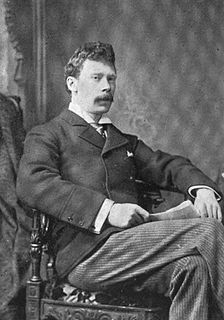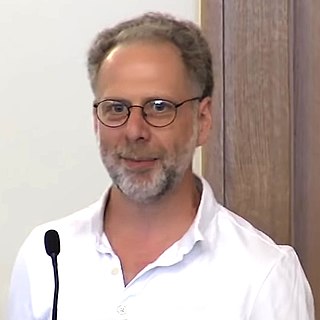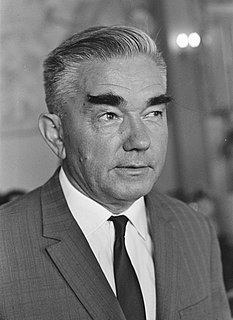A Quote by Arthur Quiller-Couch
By all means, let us study the great writers of the past for their own sakes, but let us study them for our guidance: that we, in our turn, having (it is to be hoped) something to say in our span of time, say it worthily, not dwindling out the large utterance of Shakespeare or of Burke.
Related Quotes
Anxieties about ourselves endure. If our proper study is indeed the study of humankind, then it has seemed-and still seems-to many that the study is dangerous. Perhaps we shall find out that we were not what we took ourselves to be. But if the historical development of science has indeed sometimes pricked our vanity, it has not plunged us into an abyss of immorality. Arguably, it has liberated us from misconceptions, and thereby aided us in our moral progress.
Let us strive the more earnestly therefore to lengthen out our span of life-- life that is poured out like water and falls as the leaf-- if not by action (the means to which lie in another's power), yet in any case by study and research; and since it is not granted us to live long, let us transmit to posterity some memorial that we have at least lived.
The Louvre is the book in which we learn to read. We must not, however, be satisfied with retaining the beautiful formulas of our illustrious predecessors. Let us go forth to study beautiful nature, let us try to free our mids from them, let us strive to express ourselves according to our personal temperaments. Time and reflection, moreover, little by little modify our vision, and at last comprehension comes to us.
I won't say he [Shakespeare] 'invented' us, because journalists perpetually misunderstand me on that. I'll put it more simply: he contains us. Our ways of thinking and feeling-about ourselves, those we love, those we hate, those we realize are hopelessly 'other' to us-are more shaped by Shakespeare than they are by the experience of our own lives.
Paper after paper, study after study, have shown that chairs give us back problems because they shorten our hip flexors, give us weak backs, of course it make us sedentary. We take years off our lives probably by sitting in chairs, but we like them because they're comfortable. You go to an African village, you find me a chair with a back. That's a rare thing out there.
Before making peace, war is necessary, and that war must be made with our self. Our worst enemy is our self: our faults, our weaknesses, our limitations. And our mind is such a traitor! What does it? It covers our faults even from our own eyes, and points out to us the reason for all our difficulties: others! So it constantly deludes us, keeping us unaware of the real enemy, and pushes us towards those others to fight them, showing them to us as our enemies.
Remembering our past, carrying it around with us always, may be the necessary requirement for maintaining, as they say, the wholeness of the self. To ensure that the self doesn’t shrink, to see that it holds on to its volume, memories have to be watered like potted flowers, and the watering calls for regular contact with the witnesses of the past, that is to say, with friends. They are our mirror; our memory; we ask nothing of them but that they polish the mirror from time to time so we can look at ourselves in it.
Everybody has a nightmare, and everybody apparently has falling dreams, and everybody has the drowning dream, and everybody has certain kinds of sexual manifestation dreams, as well as our stress dreams; I didn't study for the algebra test, I didn't study for my driving test, you know, all those dreams. I still have those dreams, and it's just such an interesting thing that our mind can turn against us, our own mind, you know we all have.
Let us serve Him faithfully as our Master. Let us obey Him loyally as our King. Let us study His teachings as our Prophet. Let us work diligently after Him as our Example. Let us look anxiously for Him as our coming redeemer of body as well as soul. But above all let us prize Him as our Sacrifice, and rest our whole weight on His death as atonement for sin. Let His blood be more precious in our eyes every year we live. Whatever else we glory in about Christ, let us glory above all things in His cross.
We scientists have way too much a tendency to simplify problems. I guess it actually comes to us naturally. Take the simplest unit, separate out all the confusing, external factors. Study it. Make sure you understand it. And in psychology that means the person studying the individual. But if you want to study our social nature, if you want to study processes that will lead to war and peace, you don't learn all that much by looking at the single individual. A lot of the important things are emergent facts about us, things that you can only see when you get a lot of us interacting.
We don't exist unless there is someone who can see us existing, what we say has no meaning until someone can understand, while to be surrounded by friends is constantly to have our identity confirmed; their knowledge and care for us have the power to pull us from our numbness. In small comments, many of them teasing, they reveal they know our foibles and except them and so, in turn, accept that we have a place in the world.







































